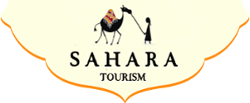Ramadan in Morocco
As Ramadan approaches in Morocco, many travelers wonder if it’s advisable to travel in this sacred month; the doubt is reasonable, as it’s a completely different time to any other, so it has its advantages and disadvantages.
But before answering the question, it’s better to explain what Ramadan really consists of.
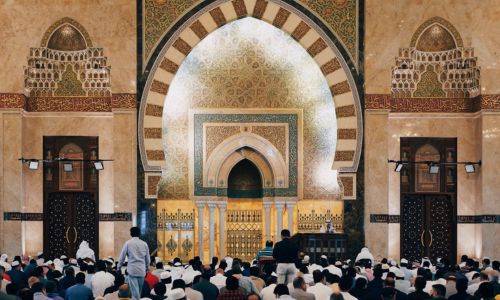
What is Ramadan?
Many people tend to synthesize Ramadan in two phrases: going hungry and eating at night. In my opinion, this is a simplification that does little for one of the elements that most represents religion and, by extension, Moroccan culture.
As you know, Morocco is a religious country, and as in every religion there is a constant trend: to get closer to God through the purification of the soul. Whether you’re religious or not, I’ve always thought that religion can be understood as a way of leading a life with a certain ethic and conscience and I think that’s applicable to Ramadan, because for me, apart from religious matters, what it’s all about is simply self-discipline, or what’s the same: showing yourself that you’re capable of living without a series of temptations, that you’re capable of overcoming a series of barriers which circumstances and your own body place in front of you. How many times have you put yourself to the test? Well, that and Ramadan have many similarities.
Ramadan, therefore, can be interpreted as a way of making a conscious effort to improve your behavior and have more self-discipline (or purification of the soul if we’re talking in a strictly religious sense): and not just avoiding food, but also other temptations that can alter the meditation practiced throughout the day, such as drinking, sexual relations or any kind of drug (including tobacco)
But that’s not all it consists of; depending a little on the region or country, other customs can be added; for example, during Ramadan in Morocco it’s common to offer alms (again, we’re back to the same thing: to show yourself that you don’t need so much money and that, moreover, you can give it to those who need it most)
Where does that leave the feast that takes place at night? Well, it’s nothing more or less than a way of celebrating, as a family, that we’ve been able to make it through another day.
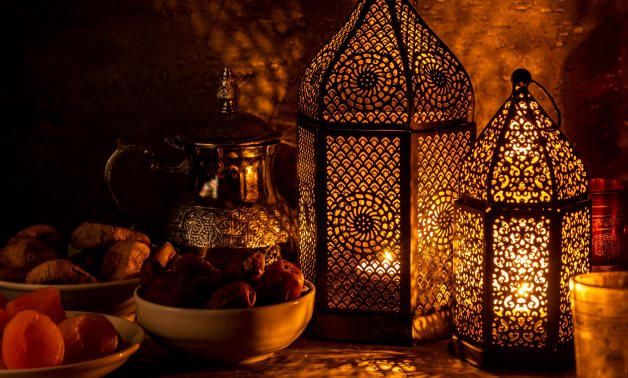
The beginning of the month of Ramadan in Morocco
Muslims have a difference with us, when it comes to religious celebrations, which makes it difficult to understand their dates: while we always follow a solar calendar, based on the seasons, they follow a lunar calendar (11 days shorter), so Ramadan, or any other Muslim date indicated, can fall in any season (I can’t imagine what it must be like to spend Ramadan in Morocco in the middle of summer).
Ramadan specifically begins with the new moon, from the last day of the month of Shaaban (the eighth month in the Islamic calendar). However, it is not until a few days before this that it is possible to know exactly when it will occur, since, although it can be calculated in advance using astronomy, tradition dictates that the imam should observe the sky to identify the first sign of a crescent moon, the one that indicates when it will start, which causes a margin of error of approximately two days.
Advantages and disadvantages of travelling to Morocco in Ramadan
Now that we’ve described Ramadan and its reason for being, I’m going to tell you both my experience and that of other people, as well as the advantages and disadvantages of visiting Morocco at this time of year:
If you travel to Morocco during Ramadan, what will surprise you most is that everything seems to slow down: people go in slow motion, and there’s hardly any traffic during the day (except for an hour before and after the fasting period ends, which everyone drives as if they were in a rally). This has a great advantage, and is that the “sporadic guides” (those who kindly offer to help tourists, and later demand money for the inconvenience) disappear, so you can walk around the tourist areas in a much quieter way, but especially without the need to say “no” at every moment.
One disadvantage is that it is more complicated to have lunch in the street; when the majority of the population fast (you have to take into account that Morocco is one of the Arab countries where it is most respected), it is common for the kitchens to remain closed during the day; that is why it will be necessary to resort to restaurants aimed at tourists in the most symbolic places; it will therefore be difficult to eat in any restaurant that is far from the touristy areas.
A very practical solution is usually to have a good breakfast, and to stock up on some food (for example some drink, a sandwich and a piece of fruit) to have a snack during the day. However, what I’m going to ask you to do, please, and out of respect for the person who’s committed to Ramadan, is to try to be discreet: bear in mind that not only can they not eat, but they can’t even drink water.
However, this is not the case all day, for as the evening passes the mood will blossom into a great party when the sirens sound to signal the end of the fast. Then you will observe how people take advantage of the occasion to drink a fruit juice, accompanied by dates, and then go to the mosque to pray. Later they return home to eat with the family and go out to the street, celebrating that they have been able to overcome the test one more day; the street becomes an anthill of people, with the restaurants full and children playing in the street, everyone sharing a great joy.
Finally..
So is it worth going to Morocco during Ramadan or is it better to avoid it and go any other time of the year?
I think it’s tremendously difficult and unfair to answer this question in a clear-cut way because Morocco becomes a completely different country during Ramadan. It’s a question of taste: I have friends who only want to go during Ramadan because they love how peaceful it is and others who don’t like going at this time; what I would certainly recommend is living the experience at least one time.
2024: Ramadan from March 11 to April 9.
DISCOVER OUR TOURS TO SAHARA DESERT IN MOROCCO
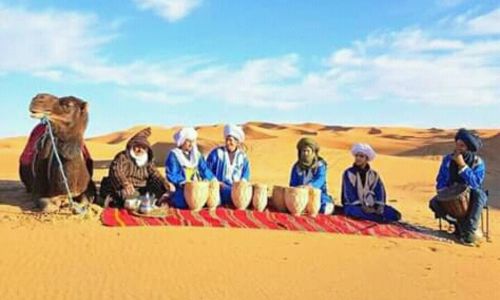
FROM MARRAKECH
Our most popular Morocco Sahara Tours . The trip from Marrakech is rich in scenery and includes an unforgettable stay in a Desert Camp.
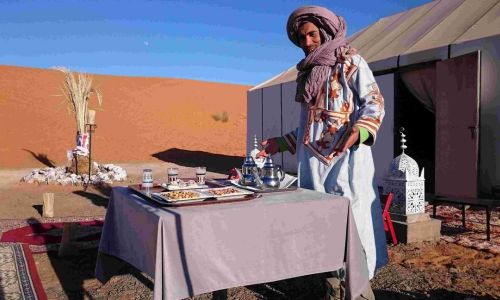
FROM FES
A great experience starting from Fes including camel trekking and at least one night in a tented desert camp in the Merzouga Desert.

CUSTOM TOURS
Our experts can create exceptional tailor-made experiences for our clients. Contact us and we´ll plan your perfect trip in Morocco.
